The 10 Best Dog Breeds for Pet Therapy
9 March, 2021
Pet therapy has become a popular form of therapy for people with disabilities, the elderly, and people with dementia. Whether you're thinking of getting your very own dog to help people, or seeking pet therapy for yourself or a loved one, Focus Care has compiled a list of the top dog breeds for pet therapy.
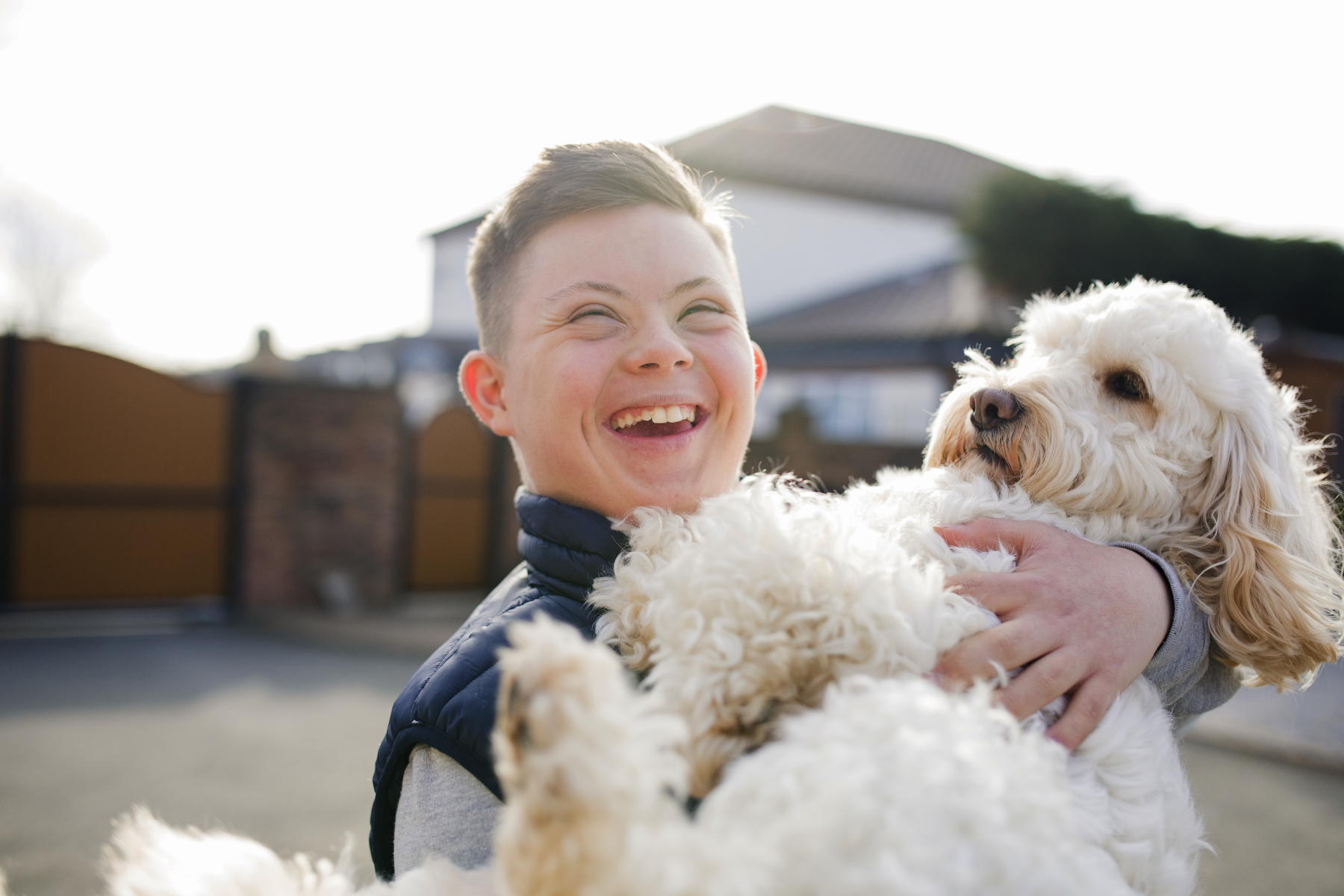
What is pet therapy?
Pet therapy involves a trained animal engaging in guided interactions with people, with the purpose of healing and accompaniment. This practice has quickly built traction within the psychology world and is now recognised as providing several therapeutic benefits.
In the interest of full safety, the animal's handler is present throughout a pet therapy session to ensure appropriate behaviour. There are two main forms of pet therapy – animal-assisted therapy (AAT) and animal-assisted activity (AAA). AAT is a more structured approach to pet therapy, whilst AAA is much more relaxed.
What are the benefits of pet therapy?
Pet therapy offers several benefits for its participants, including:
Improved mood and cognitive function
Increased quality of life
Release of endorphins which provide feelings of happiness
Improved social behaviours and interactions
What dog breeds are best for pet therapy?
Since dogs are the most popular animal for pet therapy, there are several different dog breeds which can be chosen to provide support. Each offers their own set of unique benefits, which we have outlined for you below.
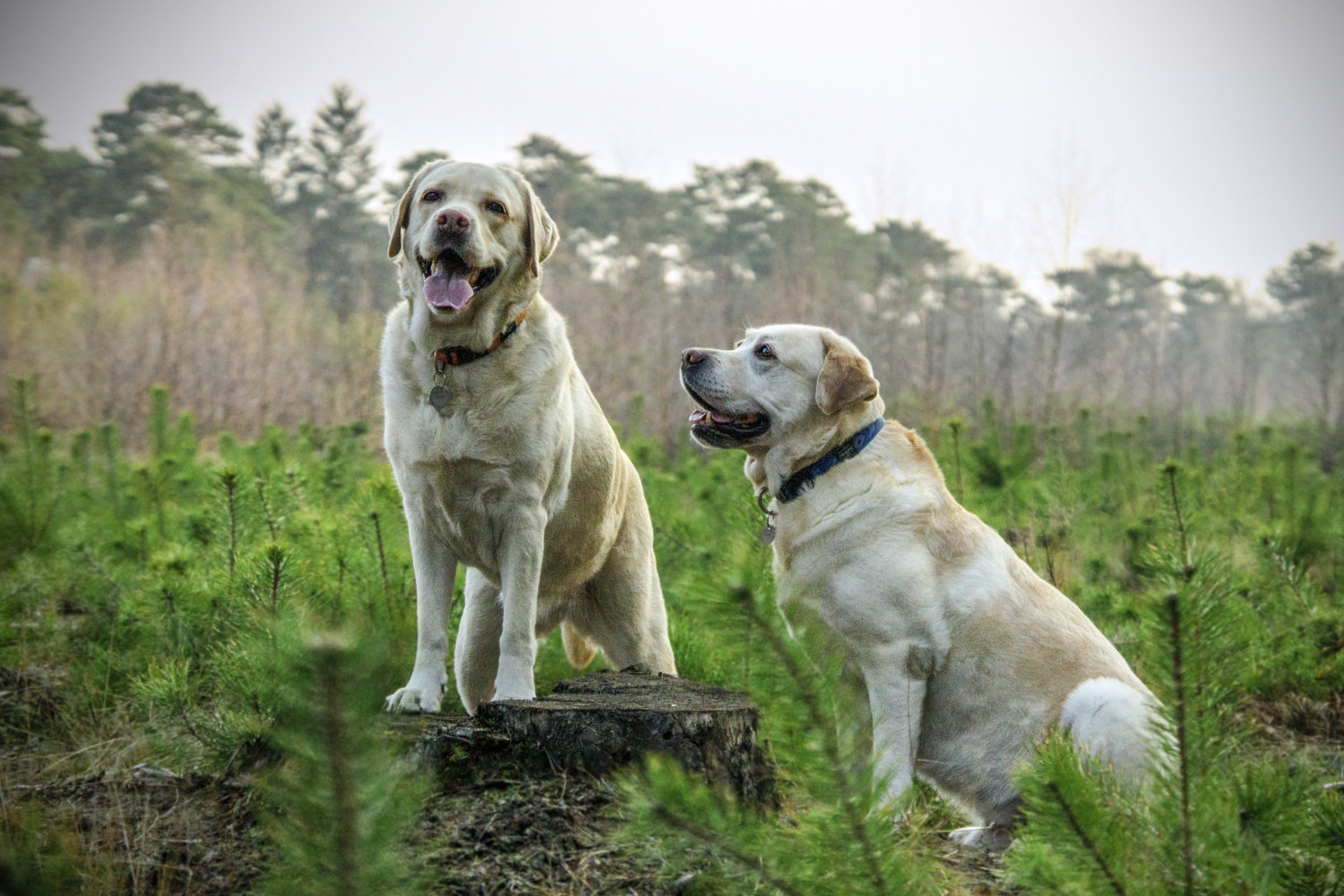 1. Labrador Retriever
1. Labrador Retriever
Labrador retrievers are arguably the most popular choice when it comes to therapy dogs. These dogs are also the most popular breed of service dogs, meaning they possess qualities that would be beneficial to those seeking out pet therapy.
Las are good-natured and versatile dogs, genuinely caring and striving to please those they are providing support for. These dogs are also relatively laid back, so they're perfect for social aspects as well!
The set of personality traits that a Labrador retriever can offer make them an ideal dog breed used to provide support and comfort to those engaging in pet therapy, particularly in those with a disability. It's why they topped this list too! Labs are obedient, socialised, and friendly – the perfect mix for a furry friend companion.
 2. Golden Retriever
2. Golden Retriever
Golden Retrievers are another top contender to be the best therapy dogs, carrying a similar demeanour to the Labrador Retriever. These loveable dogs are also a most popular dog breed and top of the list for likeability and loyalty. A Golden Retriever is also an extremely comforting dog, and they have even been used to help people, especially children, recovering from trauma after tragedy.
Because of this, a Golden Retriever may be most suited to those who need pet therapy within a family, particularly one with children. They are gentle and attentive, but their discipline also makes them suited as service dogs for adults too.
For children with autism and those with a history of trauma, Goldens are a perfect fit – their large size offers a sense of protection and their gentle demeanour can help with adjusting to the outside world.
 3. Beagle
3. Beagle
Beagles are a small to medium sized dog breed, characterised by their floppy ears. Despite their good looks, beagles have amazing demeanour as well! By nature, they are calm and well-mannered, so training them for therapy purposes only enhances their natural personality.
Lovable and friendly dogs, they can be energetic and social, but also are just as content to cuddle up and rest – making them one of the best therapy dogs for those who are immobile. Given that beagles are quite small dogs, they may be better suited to someone who lives in a smaller house or apartment.
Interestingly enough, beagles have an amazing sense of smell – especially when compared to other breeds of dogs. In some cases, they can even smell when your blood sugar is rapidly dropping! Dogs, however, need to be specially trained to alert you of this, and there are Diabetes Assist Dogs that may be more well suited to this task.
 4. Poodle
4. Poodle
This wouldn't be a complete list without mentioning poodles. Poodles may seem like an unlikely choice for therapy dogs, but they area very intelligent dog breed, and their eager-to-please personality is a definite standout in a therapy setting and can make them ideal therapy dogs especially for those seeking emotional support dogs.
Some dog lovers with a disability have said that they would be most likely to foster a poodle, mainly due to their cooperative and pleasing nature. The poodle has high concentration levels which allows for adequate training in providing therapy.
Overall, the confidence, persistence, and courage that poodles enable makes them a great therapy dog and perfect fit for being a therapy dog. They can encourage habits and routine in humans, which may be of benefit to a person with a disability.
 5. Pug
5. Pug
Pugs are also a consideration when choosing the best therapy dog breeds. Similar to a French Bulldog, their cheerful and curious nature brings entertainment and joy and can make a pug a very good therapy dog. Pugs work great as therapy dogs, particularly with children that have various neurodevelopment disorders, such as Autism Spectrum Disorder, as they bond with children particularly well, and their enthusiasm is infectious.
It is also worth mentioning that these dogs are quite high energy, which may not be the best choice for someone who is seeking a more relaxed approach to pet therapy. For those who are looking for a buddy to play with, a pug may be the perfect choice!
The intelligence of a pug is not to be disregarded. A person with a disability may particularly benefit from a pug, as they have strong emotional senses and can provide comfort and support in times of distress.
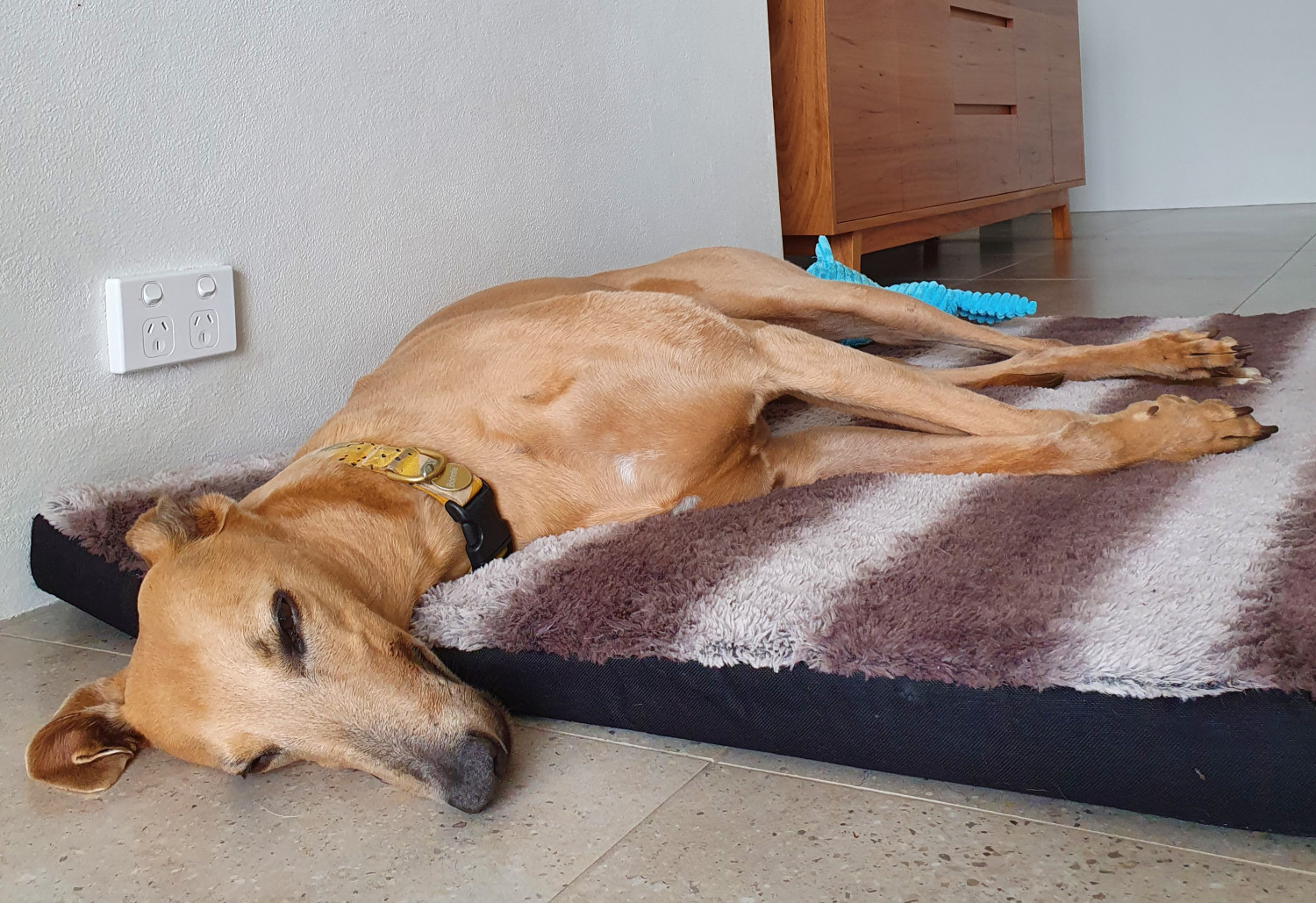
6. Greyhound
Greyhounds are usually associated with racing, but they also make excellent therapy dogs. Despite their athletic build, they have a calm and gentle temperament that makes them well-suited for providing emotional support.
Greyhound therapy dogs are often former racing dogs that have been adopted by new owners who want them to have long, full lives once their racing days are over.
Greyhounds are known for their affectionate nature and their ability to form strong bonds with humans. Their elegant and regal appearance can also be comforting to those seeking companionship.
Focus Care's current therapy dog is a beautiful greyhound by the name of Bonnie. You can learn more about Bonnie's personality in her blog profile.
Due to their laid-back demeanour, greyhounds can be a great choice for individuals looking for therapy dog breeds with a soothing presence. Their quiet and graceful nature can have a calming effect on people, making them wonderful, calm therapy dogs for various settings.
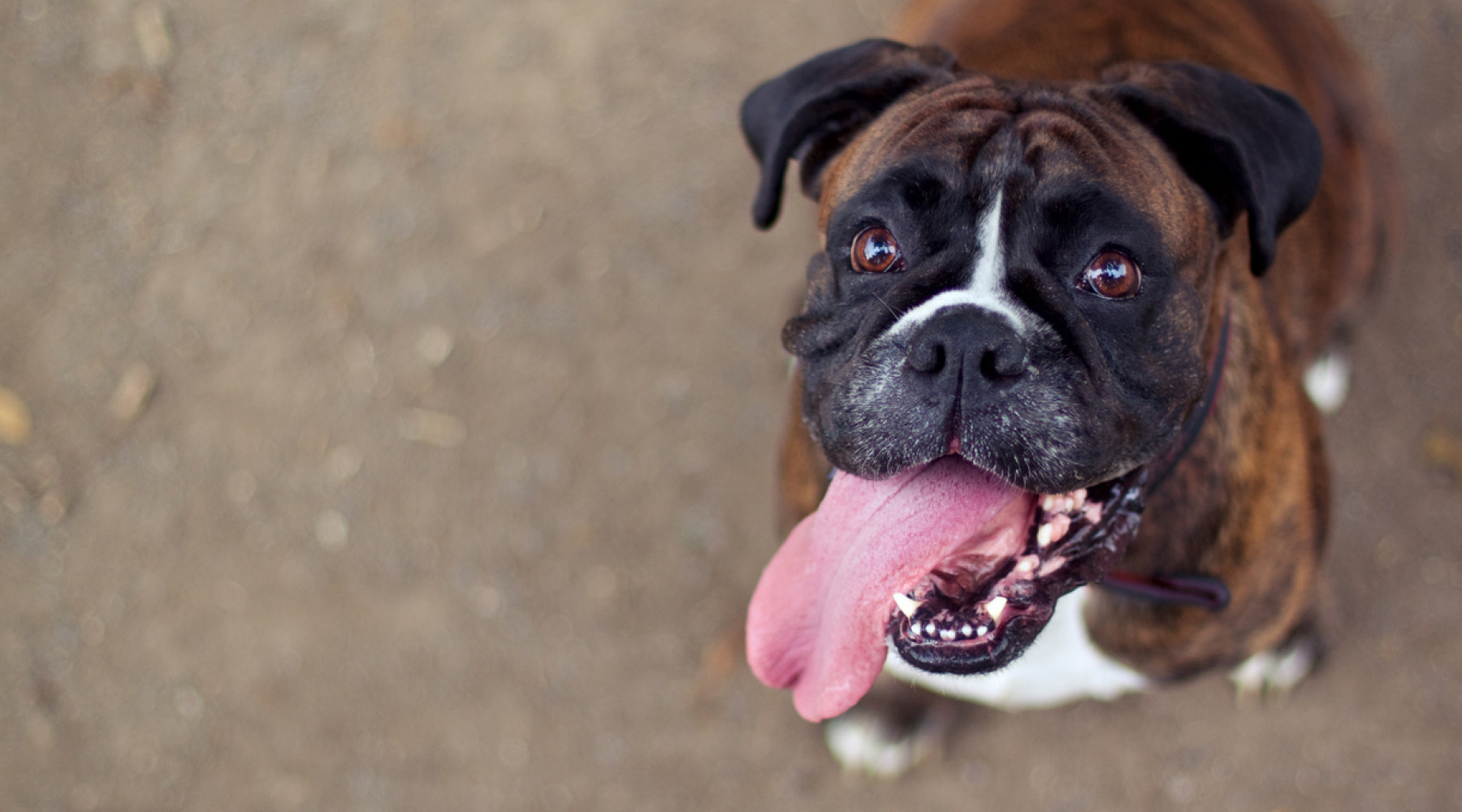
Boxer dog, one of the best dog breed for pet therapy - Focus Care
7. Boxer
Boxers are known for their boundless energy and playful spirit, making them a valuable addition to our list of the best therapy dog breeds. Their exuberance can bring smiles to people's faces, and their innate desire to be close to humans makes them excellent companions.
Despite their active nature, boxers are also incredibly sensitive and intuitive. They have a knack for understanding human emotions, can offer comfort during times of distress and help those with mental health challenges.
Their loyalty and protectiveness are additional qualities that make them well-suited for providing therapy to individuals in various situations.

Cavalier King Charles Spaniel one of the best dog breeds for pet therapy - Focus Care
8. Cavalier King Charles Spaniel
With their expressive eyes and affectionate nature, Cavalier King Charles Spaniels can also be good therapy dogs. These small dogs have a gentle and friendly disposition that makes them approachable and comforting to people of all ages.
Their size also makes them suitable for environments such as nursing homes where space may be limited.
Cavaliers thrive on human interaction and enjoy forming close bonds with their owners. This makes them ideal as an emotional support dog to individuals seeking therapy. Their calm demeanours and willingness to snuggle up also make them wonderful lap dogs, offering comfort to those in need.
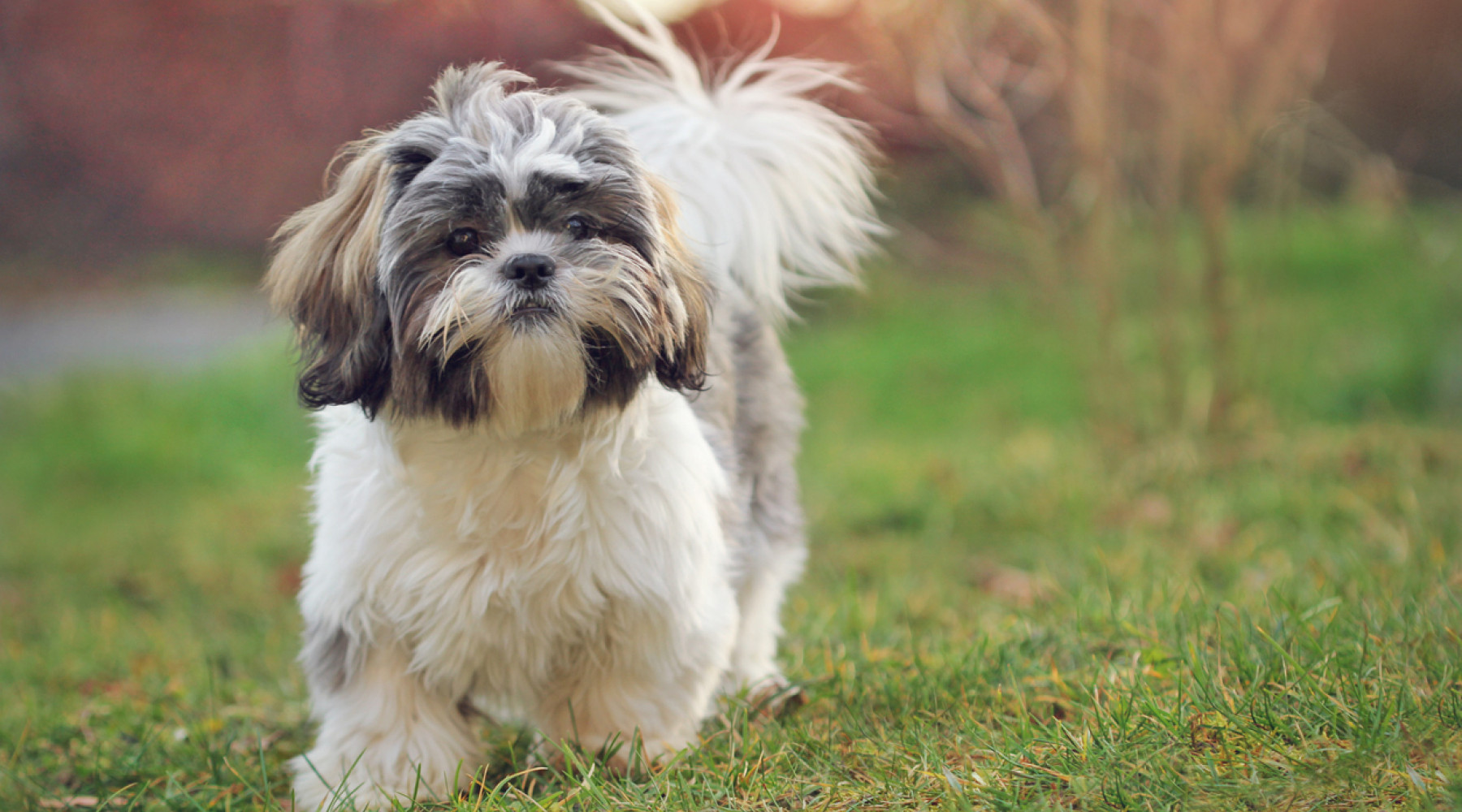
Shih Tzu dog for pet therapy at Focus Care
9. Shih Tzu
Shih Tzus are known for their luxurious coats and charming personalities, which make them great therapy dogs. These small dogs are affectionate, gentle, and great at forming strong connections with people. Their friendly nature and willingness to be close to their owners can provide immense comfort for those seeking a companion dog.
Shih Tzus excel at offering companionship and are skilled at sensing their owner's moods. Their adaptability and willingness to engage in various activities, from playtime to relaxation, make them versatile therapy dogs. Their playful antics and soothing presence can be a source of joy for individuals undergoing therapy or simply in need of a furry friend.
 10. Yorkshire Terrier
10. Yorkshire Terrier
Yorkshire Terriers, affectionately known as Yorkies, can also be great therapy dogs due to their charming personalities, low shedding coats and convenient size. These pint-sized companions boast an unwavering loyalty and affection toward their human counterparts. Their friendly demeanours and willingness to engage with people of all ages make them perfect for therapy environments. With a keen intelligence combined with an endearing appearance, Yorkies also possess an ability to learn and respond to commands, making training straightforward.
Always remember to consider the individual dog's personality
Remember that while certain breeds may have tendencies that make them suitable as potential therapy dogs, individual temperament and training also play a crucial role in determining a dog's ability to provide effective emotional support. My other dogs breeds including the German Shepherd, French Bulldog, Yorkshire terriers and others may be great, intelligent therapy dogs. As a result, it's important to evaluate each dog on a case-by-case basis and to consider factors such as personality, behaviour, and training when looking for great therapy dogs.
Is pet therapy safe?
Pet therapy can be very safe when specific measures are put into place - such as hygiene and proper training. At Focus Care, our pet therapy dogs are trained, immunised, and free from illness. We also adhere to standards of cleanliness and risk elimination for our therapeutic visitation dogs.
Our therapy dog is also always accompanied by a handler and is properly trained to interpret and respond to human behaviours.
Pet therapy in Australia
There is no specific certification that dogs or dog owners need to complete in order to become a therapy dog in Australia. While many organisations offer fantastic training programs, unfortunately the industry is largely unregulated. As a result, it is important to find a therapy dog and a pet therapist you trust with credentials you can rely on.
At Focus Care, our pet therapist, Susan is highly experienced and also a registered counsellor.
What breed of therapy dogs does Focus Care use?
Focus Care works with a wonderful greyhound therapy dog by the name of Bonnie. You can learn more about Bonnie and her owner, Susan who is our pet therapist, in their blog profile.
What if I have my own therapy dog and want to provide support through Focus Care?
We are always looking for more team members to offer animal assisted therapy. Dogs that have been trained and have experience are always welcome to apply! If you have a trained therapy dog and live in NSW, Queensland, or Victoria, get in touch with us today and see how we can help you and your therapy dog provide support.
What if I have my own therapy dog and want to provide support through Focus Care?
We are always looking for more therapy dogs to join our team! If you have a trained therapy dog and live in NSW, Queensland, or Victoria, get in touch with us today and see how we can help you provide support.
How can Focus Care help?
Focus Care is proud to offer pet therapy services to NDIS and Home Care Package clients. We also offer this service privately. To find out how we can incorporate pet therapy into your own personalised support plan, contact us today.




